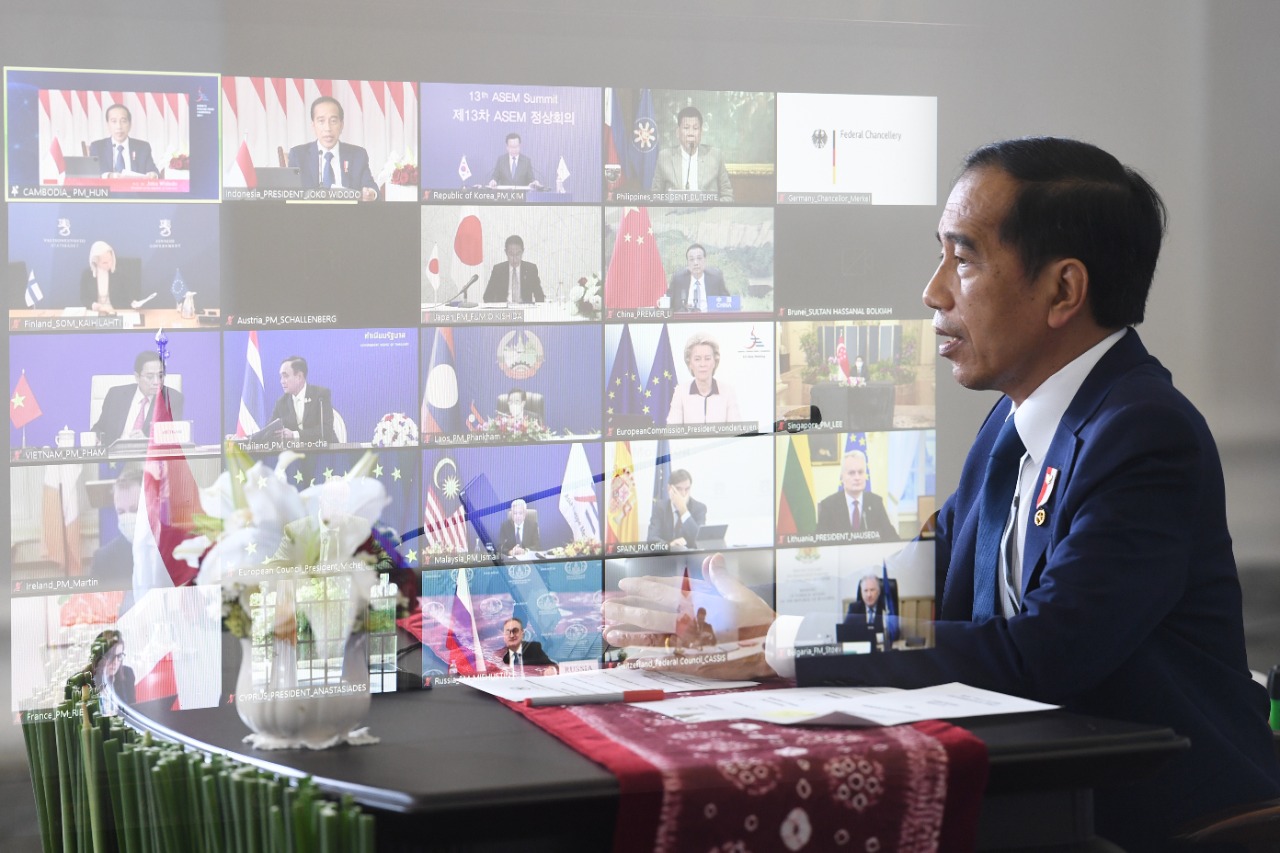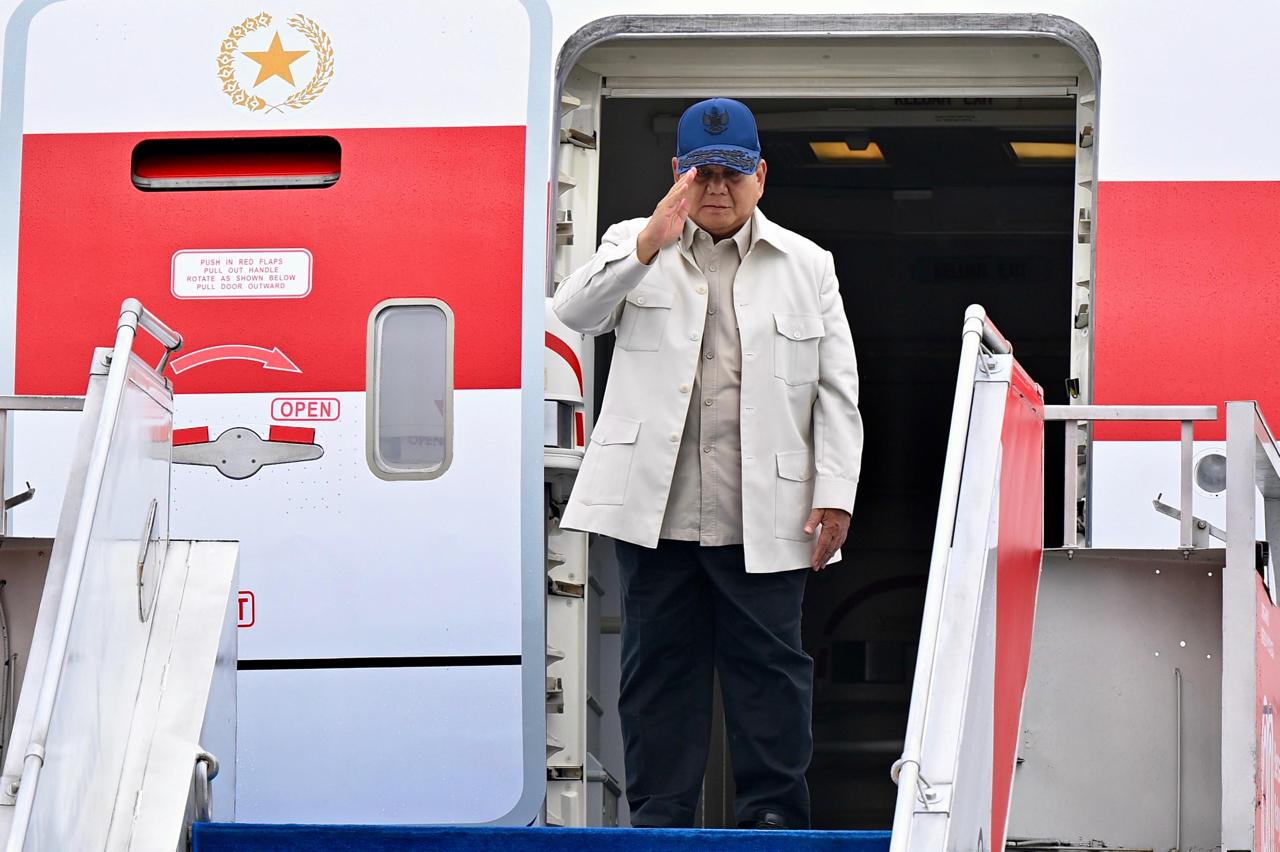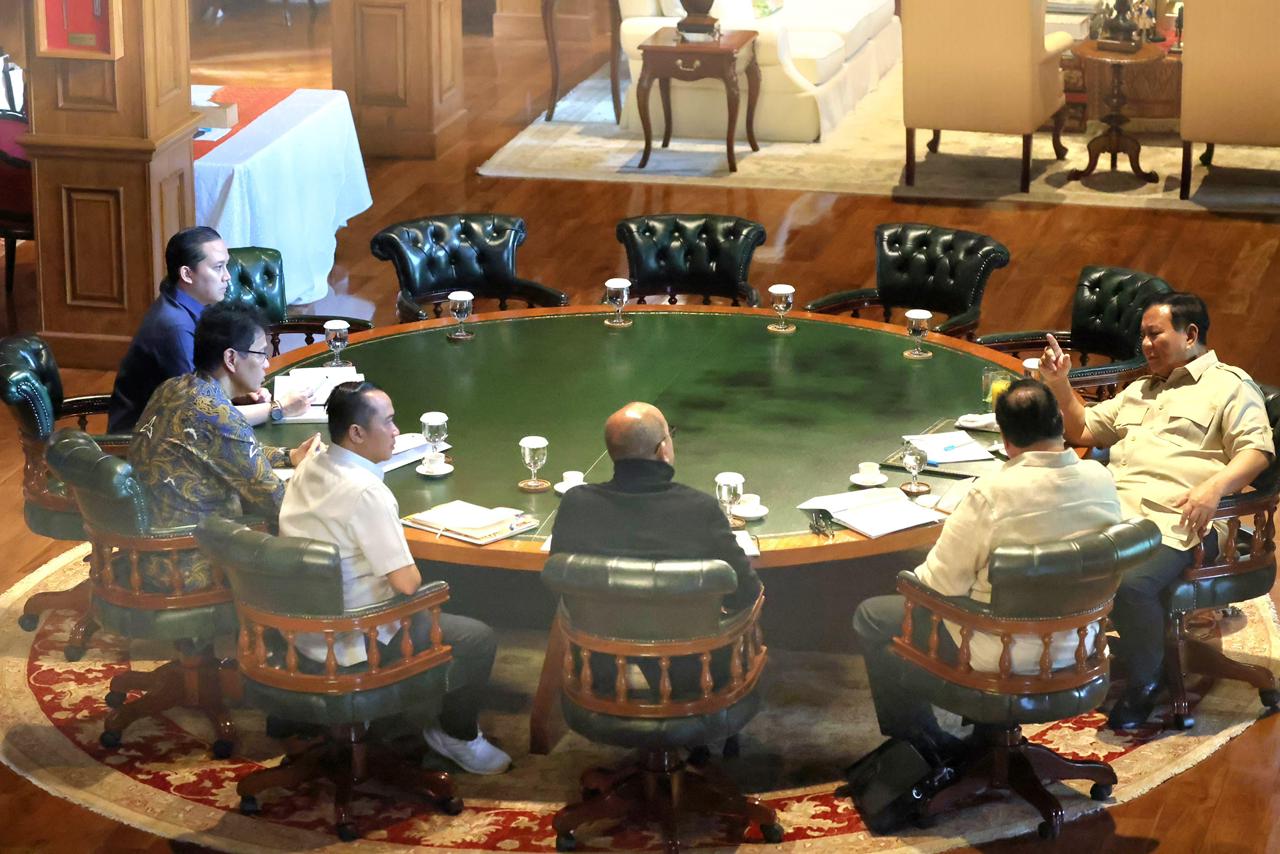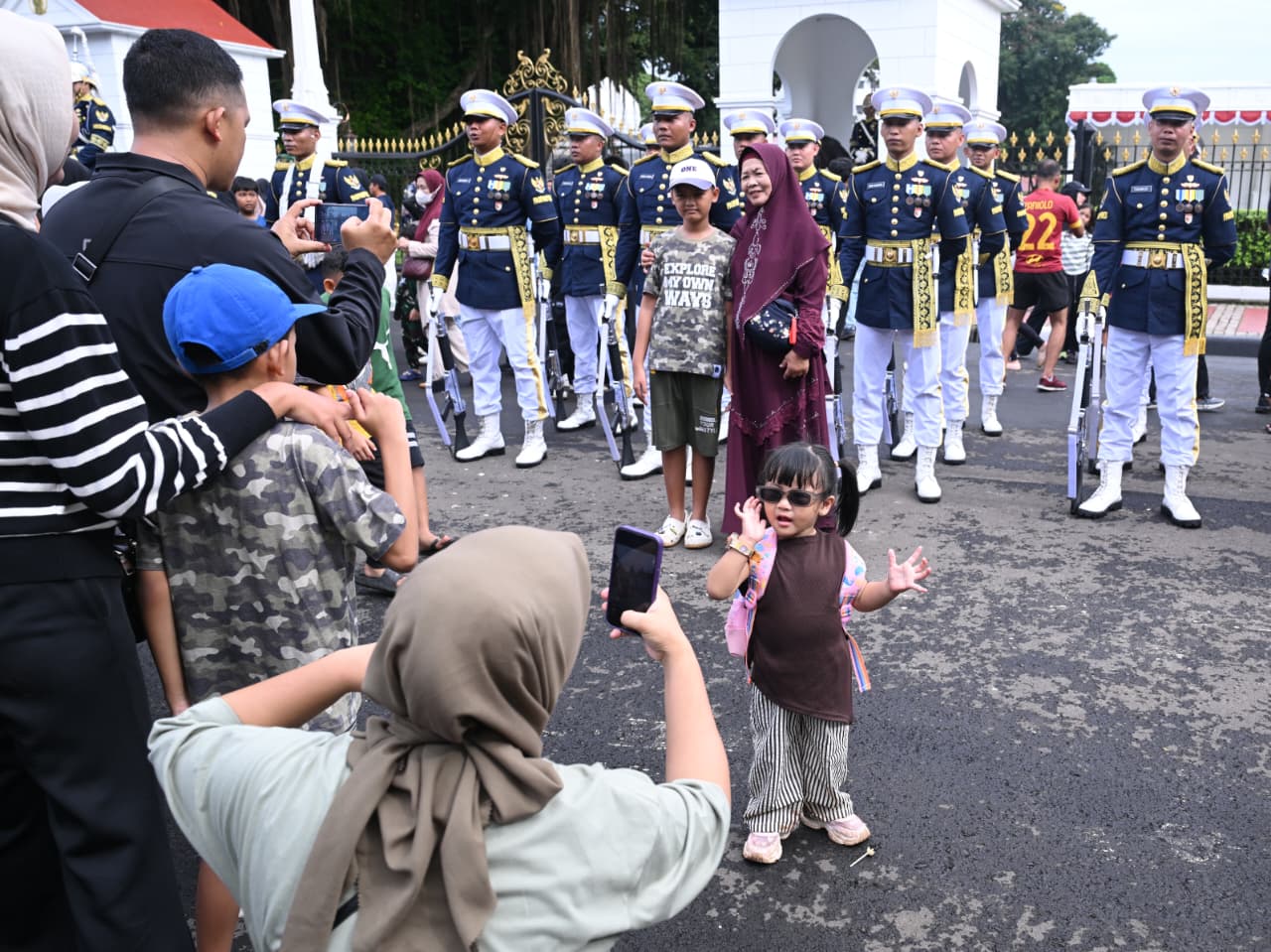President Jokowi Appeals to ASEM Leaders to Join Hands to Achieve WHO Vaccination Target

President Jokowi Friday (26/11) attends the 13th ASEM Summit virtually from the Bogor Presidential Palace, West Java province. (Photo by: BPMI/Lukas)
President Joko “Jokowi” Widodo has called on Asian and European leaders to join hands to combat COVID-19.
According to the President, more than 7.6 billion doses of vaccine have been administered; yet the gap in access to vaccines remains wide.
“[As many as] 64.99 percent of the population of rich countries have received at least one dose of vaccine, while in poor countries only 6.48 percent,” President Jokowi said in his remarks at the 13th Asia-Europe Meeting (ASEM) Summit Friday (26/11) attended virtually from Bogor Presidential Palace, West Java province.
The WHO vaccination target, the President added, is still difficult to achieve.
It is estimated that almost 80 countries will not reach vaccination target of 40 percent of the population by the end of 2021.
In fact, at the same time, more than 100 million doses of vaccine in the G7 countries will be unused and expired.
“In this meeting, I’d like to invite us all to change this situation. The WHO vaccination target must be achieved by all countries. For this reason, a dose-sharing mechanism must be encouraged, vaccine production must be increased, and absorption capacity of vaccine recipient countries must be increased,” President Jokowi said.
Meanwhile, in the long term, President Jokowi also invited ASEM leaders to continue to strengthen global health governance and architecture and this will also be one of the main agendas in the Indonesian Presidency at the G20.
“In this regard, WHO must be strengthened. The pandemic treaty must be supported by all countries and a health funding mechanism for developing countries needs to be established,” the President said.
On acceleration of economic recovery, President Jokowi highlighted that close cooperation of ASEM leaders is required in energy and digital transition.
The transition to new and renewable energy, the President stated, must continue to be encouraged but it also needs to be placed to achieve SDGs.
“Investment and technology transfer are the key,” he said, adding that inclusiveness is also deemed very important so that the gap in welfare will not widen and no one is left behind. Inclusiveness can be achieved if digital access is improved, the President said.
“Digital economy is the future of our economy. Let’s work together so that we can recover together and rebound,” he remarked. (BPMI/UN) (FI/EP)








